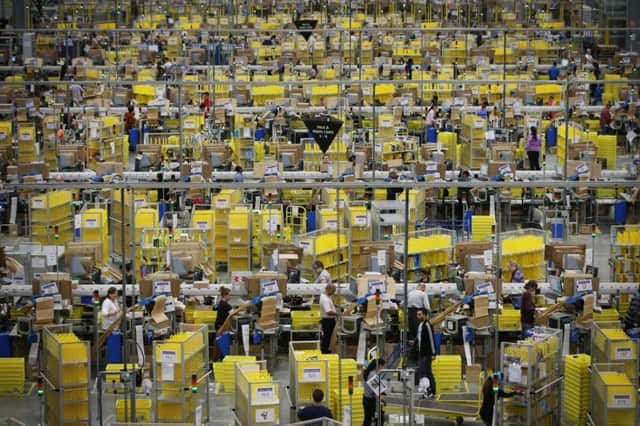Amazon tax deal with Luxembourg ‘illegal’


An investigation into Amazon and its EU tax arrangements was launched in October. The European Commission has now revealed its preliminary assessment containing concerns about the technology company’s dealings.
The ruling could see a “harmonisation” of tax rules across Europe.
Advertisement
Hide AdAdvertisement
Hide AdAmazon registers its profits from across the EU at its unit in Luxembourg. The company’s taxable profits in Luxembourg are then further reduced by making royalty payments to another Luxembourg-based Amazon entity that is not subject to corporate taxation.
Therefore, not only does Amazon pay little tax in many EU countries where it operates, but also its effective tax rate in Luxembourg is particularly low.
The EC is worried the arrangement could “grant an economic advantage to Amazon”.
However, Amazon said it “has received no special tax treatment from Luxembourg”. “We are subject to the same tax laws as other companies operating here,” it said.
The firm employs roughly 1,000 staff in the Grand Duchy.
The Luxembourg finance ministry said: “Luxembourg is confident that the state aid allegations in this case are without merit and will be able to convince the commission of the legitimacy of the anticipatory decision in question and that no competitive advantage was granted.”
Crawford Spence, of Warwick Business School, who researches tax avoidance, said he felt Amazon’s tax deal in Luxembourg amounts to state aid.
Professor Spence said: “The issue of whether Amazon’s deal with Luxembourg was a ‘sweetheart’ one constituting state aid seems to deflect attention from the main issue here: namely, that Luxembourg has long operated as a de facto tax haven within the internal market, effectively depriving other EU governments, and the EU in general, of significant tax revenues.
“There is a simple way to put an end to these sorts of scandals: harmonise tax rules across EU member states.”
Advertisement
Hide AdAdvertisement
Hide AdIn a 23-page letter outlining preliminary conclusions from its probe, Brussels alleges that Amazon’s European hub was founded on favourable and selective tax treatment that amounts to an illicit state subsidy, which may need to be clawed back.
The case has political ramifications because Amazon’s tax deal was negotiated in 2003 when EC president Jean-Claude Juncker was Luxembourg’s prime minister. This follows leaks that have piled pressure on Mr Juncker by showing 340 other multinationals operating in the duchy pay little tax.
Luxembourg’s GDP per person stands at €83,400 (£63,500) – the EU average is €25,000.
The EC also had questions about how royalty payments between certain Amazon companies were calculated, and whether “Amazon has a financial incentive to exaggerate the amount of the royalty” between its Luxembourg head office company and an Amazon firm that holds shares in the head office company.
“If the royalty is exaggerated, it would unduly reduce the tax paid by Amazon in Luxembourg by shifting profits to an untaxed entity from the perspective of corporate taxation,” it said.
Luxembourg’s Amazon deal is one of four commission investigations into tax rulings. Others include Ireland’s arrangements with Apple, Luxembourg’s clearance of structures used by Fiat, and the Netherland’s approval of Starbucks’ tax base.